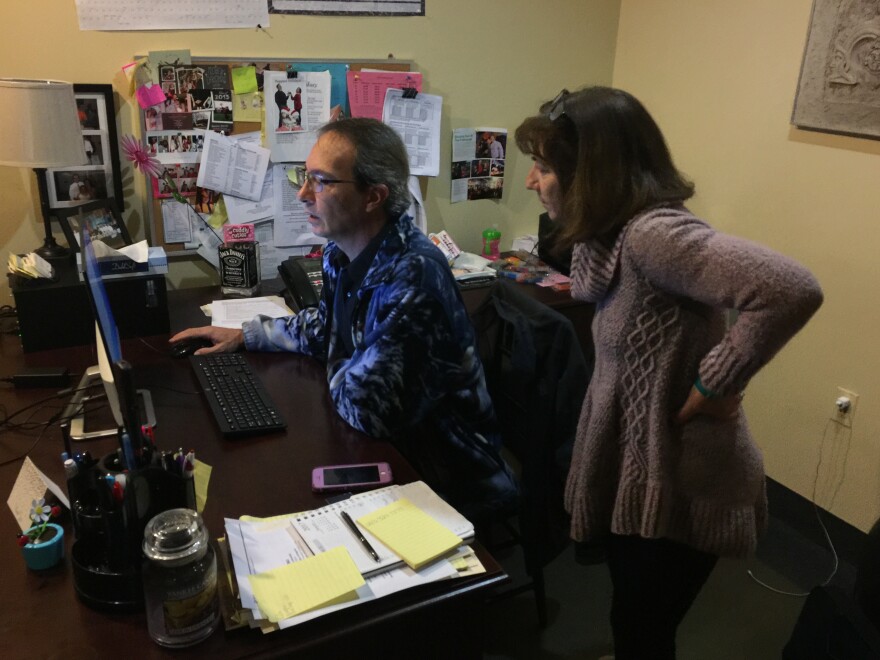Apprenticeships have always been a way to provide on-the-job training for people who want to work in the skilled trades; like a carpenter or electrician.
Not so much for IT, until now.
Steve Grega, for example, has bounced around a lot of jobs in the IT industry, including computer retail, for more than 20 years. Now he has an apprenticeship with UTX, a tech company based in Cockeysville. He says he went for it because he was tired of hopping from one contract to another.
“You have a contract, it can be one week at company ‘X’ and not have anything for three or four weeks before they put you in for six months at company ‘Y,’” he said. “I’ve gotten to the point that jumping around is not really conducive to what I want to do any more.”
Grega’s apprenticeship is a full-time job with a lot of training – at least 144 hours of classroom time – and mentorship. He will even get a raise if he meets certain goals.
One recent morning Grega was listening to Iris Gold – an event designer with Zeffert and Gold Catering in Woodlawn – describe a problem she was having with her machine. Not a furnace, but the computer on her desk.
“It was kind of like a gasping out of the back; like it was trying to play catch up,” Gold said.
It was one of the rare times that he had to fix a problem on site. Most of the time; he’s solves problems over the internet.
Grega’s apprenticeship was arranged through Northeast Baltimore-based TranZed Apprentice Services, a company modeled after 3aaa, an outfit based in the United Kingdom that provides non-traditional apprenticeships.
TranZed grew out of President Obama’s call for expanding apprenticeships into non-traditional fields like IT and cyber-security.
The company partnered with The Children’s Guild after the guild expressed an interest in expanding its educational mission.
Kimberly Neal, president of TranZed, says they were able to take their first apprentices in November after a change in state regulations.
“We’ve had to work with the government and the legal system to actually amend COMAR to expand apprenticeships and allow us to bring forth this offering,” she said.
State Labor Secretary Kelly Schulz says the change in law began in 2015 when the legislature approved creating pilot youth apprenticeships for STEM careers.
“We took that opportunity with the youth apprenticeship program to really start to talk and advocate for those types of non-traditional apprenticeship programs in the registered apprenticeship program in what we would consider more of an adult traditional style program,” she said.
Schulz says the possibilities for non-traditional apprenticeships are endless. Based on her department’s website, you can start apprenticeships in Maryland for illustrator, medical assistant; even journalism.
“It really is what the industries, the businesses, the workforce system is craving is that combination between your academic and your learning environment and the on the job training.”
For companies like UTX, apprentice services offered by TransZed save time.
UTX President Ed Podowski says he was able to hire his first apprentice - Steve Grega – in two to three hours; calling the process easy compared to what he did before.
“If I’m hiring one person, I’m going to spend 10 to 20 hours going through interviews. I get 50 applications; 50 resumes,” he says. “I have to look through all of those. I have to have either myself or have someone call references; I have to do the first interviews.”
More than 300 people have applied to apprenticeships through TranZed, located in the same building as The Children’s Guild, since the fall. And Kimberly Neal says they are looking for more businesses to offer apprenticeships.
They are also looking to expand across the state and to other fields like paralegal, business administration and health care.


